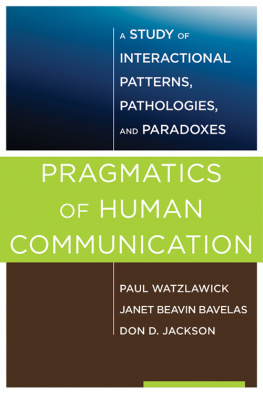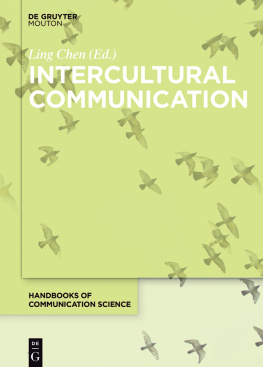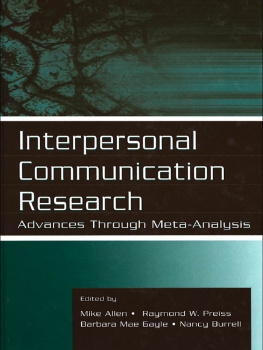First published in 1982 by Gordon and Breach, Science Publishers, Inc.
This edition first published in 2016
by Routledge
2 Park Square, Milton Park, Abingdon, Oxon OX14 4RN
and by Routledge
711 Third Avenue, New York, NY 10017
Routledge is an imprint of the Taylor & Francis Group, an informa business
1982 Gordon and Breach, Science Publishers, Inc.
All rights reserved. No part of this book may be reprinted or reproduced or utilised in any form or by any electronic, mechanical, or other means, now known or hereafter invented, including photocopying and recording, or in any information storage or retrieval system, without permission in writing from the publishers.
Trademark notice: Product or corporate names may be trademarks or registered trademarks, and are used only for identification and explanation without intent to infringe.
British Library Cataloguing in Publication Data
A catalogue record for this book is available from the British Library
ISBN: 978-1-138-93903-5 (Set)
ISBN: 978-1-315-67052-2 (Set) (ebk)
ISBN: 978-1-138-94155-7 (Volume 2) (hbk)
ISBN: 978-1-315-67050-8 (Volume 2) (ebk)
Publishers Note
The publisher has gone to great lengths to ensure the quality of this reprint but points out that some imperfections in the original copies may be apparent.
Disclaimer
The publisher has made every effort to trace copyright holders and would welcome correspondence from those they have been unable to trace.
UNDERSTANDING COMMUNICATION
The Signifying Web
D. J. Crowley
Copyright 1982 by Gordon and Breach, Science Publishers, Inc.
Gordon and Breach, Science Publishers, Inc.
One Park Avenue
New York NY10016
Gordon and Breach Science Publishers Ltd.
42 William IV Street
London WC2N 4DE
Gordon & Breach
58, rue Lhomond
75005 Paris
Library of Congress Cataloging in Publication Data
Crowley, David J., 1945-
Understanding communication.
(Communication and the human condition ; v. 2)
Bibliography: p.
Includes index.
1. Communication. I. Title. II. Series.
P90.C78 001.51 82-1061
ISBN 0-677-05920-5 AACR2
ISBN 0 677 05920 5. ISSN 0275-2069. All rights reserved. No part of this book may be reproduced or utilized in any form or by any means, electronic or mechanical, including photocopying, recording, or by any information storage or retrieval system, without permission in writing from the publishers. Printed in the United States of America.
It would be impossible to overstate the role of communication in the human condition, and in the evolution of human civilization. In communication, we construct and navigate our everyday lives. The limits of our communicable world are the limits of our lives. In our communication with one another we mediate, on the one hand, the form and the substance of our consciousness, on the other, the form and the significance of all of our social arrangements and social institutions. We create ourselves, and re-create the social/cultural milicu in which we will have our lives, in communication. Just as our histories are a matter of what we have said of them, our futures are a matter of what we may say of them.
Every human culture, every human society, every human encounter, every human being, must be realized in communication. What we refer to when we refer to human nature is nowhere to be found in nature. It is what people have made of themselves, in various cultures, at different times and in different ways, in and through communication.
All human affairs, from the everyday to the epochal, are engendered in communication. The form and the substance the very meaning of our lives, is given in what we can say that others will understand, and what others will understand of what we may say. What we know and how we know it, perhaps even what we can know, is given in the ways in which we do and do not communicate. Everything people do, and everything people do not do, has its motive and its motif in communication. Whatever is not created in communication, if it is to be part of our human lives, must be given sensibility or legitimacy in communication, Every feeling, every belief, every thought we may have is mediated by communication.
As we communicate, so shall we be.
Civilizations are made of words. Every human artifact a bridge no less than a book, a political strategy no less than a mind, a sculpture no less than a world view has its possibility and its destiny in what can be, what is, said about it. That of which we cannot speak does not exist for us. What we may speak of exists for us only in those ways in which we do speak of it. The only world we know is given to us in communication.
To be human is to be in communication. In an exceedingly eloquent and poignant passage about her early life, Helen Keller told us that to be humanly conscious requires communicability. Communicative competence is not just another useful skill, like shoemaking; it is ones ticket of admission to human and social life.
Every human entanglement war no less than peace, hate no less than love, despair no less than hope, aggression no less than mutual cooperation, innovation no less than conservation, whether in science or politics or art or economics or everyday life is conceived and has its life in communication. Our long-term human interests are given, or taken away, in communication. It may be that what we need in the short run is more food to feed the worlds starving millions. But what we need in the long run is a way of talking about such matters that would radically alter either our ways of producing and consuming food, or our ways of producing and consuming people.
Undergirding the greatest human achievements, and the greatest human catastrophes, there has always been a compelling human belief. And human beliefs are made of words. What is, no less than what ought to be, is given in how we can, how we do, communicate.
In constructing and maintaining all that of which we may be mindful in communication, we construct and maintain ourselves. The awesome extent to which we do participate in communication in the creation of the conditions of our humanity, of our social and cultural lives, of our problems and possibilities, is perhaps what makes it so difficult for us to come to grips with the idea of human communication.
Whether it is the sheer difficulty of doing so, or our fear of doing so, that has impeded our understanding and appreciation of the role of communication in human life and human civilizations, there can be little excuse for the way in which twentieth-century Western thought has trivialized the idea of communication. To understand communication in any ultimate sense would surely be the crowning achievement of the human intellect: How shall we understand that process by which we understand? Yet what would we know if we knew that? And suppose we could not measure up to that knowledge? But to trivialize the idea of communication in order to make it amendable to our technicist-scientistic ways of knowing all in the name of science not only does mankind a disservice; it does science a disservice. The central issues in communication are not those that our often petty and short-sighted concerns of the day rather too easily suggest to us. The central issues are not, in fact, merely theoretical or merely scientific; they are not, in fact, issues that require only our understanding or explanation; they are, in fact, ultimately







